LIVE UPDATES: Coronavirus - NI Executive agrees new easing of several Covid-19 restrictions
and live on Freeview channel 276
For more on this story - please scroll down!
LIVE UPDATES: Coronavirus - Top NI hospital runs out of ICU beds as three Covid-19 deaths recorded in last 24 hours
Top NI hospital runs out of ICU beds as three Covid-19 deaths recorded in last 24 hours
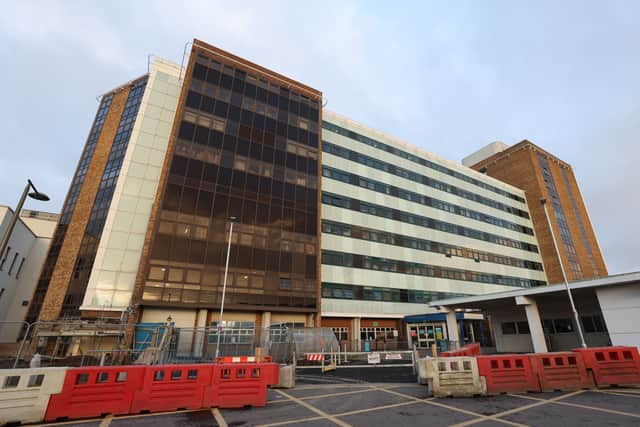

One of Northern Ireland’s busiest hospitals, Altnagelvin Area Hospital in Londondonderry, has exhausted all of it ICU beds, the latest data contained with the Department of Health (DoH) Covid-19 dashboard shows.
In fact there are only eight ICU beds available for all patients across Northern Ireland.
The news comes on the same day four additional people were moved into ICU and three deaths were recorded.
Of the 76 patients in ICU, 29 have Covid-19; 41 other conditions and eight and eight beds are unoccupied.
DoH also has 53 patients on ventilators; 21 of which Covid-19 and 32 non covid.
The DoH also recorded a further 1,453 new infections in the last 24 hours taking the total number to test positive for the virus in the last seven days to 9,078.
NI Executive agrees new easing of several Covid-19 restrictions
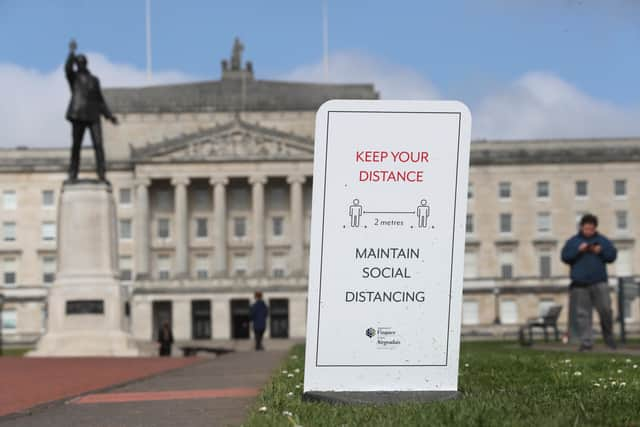

Theatres and concert halls are to be allowed to reopen in Northern Ireland as part of the latest relaxations to Covid-19 rules - writes David Young, PA.
Stormont ministers have also raised the number limit for gatherings in indoor domestic settings from six to 10 people, from no more than three households.
Wearing face coverings inside places of worship is also set to be changed from a mandatory requirement to guidance, while restrictions on how MOT vehicle tests are conducted are to be eased.
The steps are due to come into legal effect at 6pm on Tuesday.
It is understood theatre and concert hall performances in Northern Ireland will have to be ticket-only events, with tickets purchased in advance.
Indoor audiences must have allocated seats and must remain seated throughout performances, with social distancing of one metre.
Live music will also be permitted in theatres and concert halls and other venues, with no restrictions on volume.
The wearing of face coverings during acts of worship will change from regulation to guidance in Northern Ireland, but it will still be a legal requirement to wear them when entering and exiting the building.
Ministers will also strongly advise their use when singing or when moving around during services.
The decisions were taken during a virtual executive meeting on Monday afternoon.
Two relaxations agreed by ministers last week came into force on Monday.
A cap limiting the number of households allowed to participate in 15-person outdoor domestic gatherings was removed and close contact services, such as hairdressers, were able to accept walk-in customers.
The latest decisions, delayed from last week, were made after ministers were presented with more data on the link between positive cases and hospital admissions.
Ministers will convene again on Thursday to consider relaxations considered “higher risk”.
Those include the resumption of conferences and exhibitions and a proposal to end social distancing requirements for outdoor activities and reduce the distance to one metre for indoor settings.
At Monday’s executive, ministers also discussed Northern Ireland’s waiting list crisis.
The region has the worst waiting list times in the UK. There are currently more than 335,000 waiting for a first consultant-led appointment, with some facing waits of up to seven years for treatment.
The waiting lists have led to increased pressures on emergency departments across the region.
Those pressures have been exacerbated by increased numbers of Covid-19 admissions, and on Sunday two health trusts, Belfast and South Eastern, issued an emergency call for off-duty staff to come in to help deal with the worsening situation in hospitals.
A further 639 cases of Covid-19 were reported in Northern Ireland on Monday.
There were no new deaths notified by the Department of Health.
11 Covid-19 related deaths in less than two weeks as six more are moved to ICU in last 24 hours
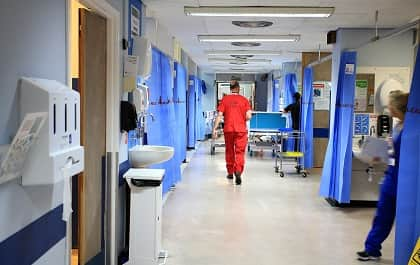

Northern Ireland has recorded 11 Covid-19 related deaths in less than two weeks, the most recent data published by the Department of Health (DoH) confirms.
The DoH dashboard shows 11 deaths have been recorded in the 12 days from July 14.
The number of inpatients with Covid-19 has almost tripled in the last 12 days from 72 on July 14 to 208 on July 26.
Also on July 14, there were two patients in ICU and one requiring a ventilator however, less than 14 days later and there are now 25 patients in ICU and 16 using ventilators.
There were no new Covid-19 related deaths recorded in the last 24 hours however there 639 new infections.
A total of 9,242 people have tested positive for Covid-19 in the last seven days.
Northern Ireland has highest rate of new Covid-19 cases among UK nations
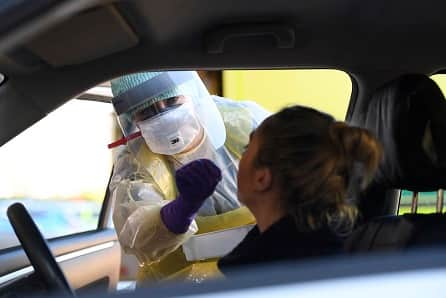

Northern Ireland has overtaken England to become the UK nation with the highest rate of new coronavirus cases - writes Ian Jones, PA.
It is also the only one of the four nations that is recording a steady rise in rates.
A total of 9,832 new cases of Covid-19 were recorded in Northern Ireland in the seven days to July 21 – the equivalent of 519.2 cases per 100,000 people.
This is up sharply from 253.4 one week earlier and is the highest rate for Northern Ireland since January 9, according to analysis by the PA news agency.
By contrast, England now has the second highest rate of the four UK nations and is sitting just behind Northern Ireland on 499.1 cases per 100,000 people.
While this is up week-on-week, the figure is slightly below the rates recorded for England in recent days.
Wales is also starting to show a drop in rates, with a figure of 184.1 cases per 100,000 people for the seven days to July 21 – down from 192.8 one week earlier.
The rate for Scotland has been falling steadily for the past few weeks, and stands at 215.3, down from a peak of 427.3 on July 3.
The fall in rates that is now under way in three of the four nations reflects the recent drop in the daily number of new reported cases for the whole of the UK.
But the ongoing rise in rates in Northern Ireland is a reminder that the UK-wide figures can conceal variations between different nations.
Every local authority area in Northern Ireland is now recording a week-on-week rise in rates.
In Scotland only six of the 32 local areas are recording a rise, however.
And in Wales, only eight of the 22 local areas have seen rates increase week-on-week.
Of the 315 local authority areas in England, 270 (86%) are still showing a week-on-week rise in rates.
This is because the fall in cases reported in recent days has yet to show up in the weekly figures.
Most regions of England are also still recording a week-on-week increase in rates.
The one exception is north-east England, where the rate stood at 804.5 cases per 100,000 people for the seven days to July 21.
This is down from 910.4 one week earlier.
North-east England continues to be the main regional hotspot of the current wave of coronavirus, with Redcar & Cleveland, Middlesbrough and Stockton-on-Tees recording the highest local rates in the UK.
Yorkshire & the Humber has the second highest regional rate in England (589.8), followed by north-west England (545.0) and the West Midlands (511.0).
South-east England has the lowest rate: 417.8.
All rates are based on the latest data published by the UK’s health agencies.
Northern Ireland has highest rate of new Covid-19 cases among UK nations


Northern Ireland has overtaken England to become the UK nation with the highest rate of new coronavirus cases - writes Ian Jones, PA.
It is also the only one of the four nations that is recording a steady rise in rates.
A total of 9,832 new cases of Covid-19 were recorded in Northern Ireland in the seven days to July 21 – the equivalent of 519.2 cases per 100,000 people.
This is up sharply from 253.4 one week earlier and is the highest rate for Northern Ireland since January 9, according to analysis by the PA news agency.
By contrast, England now has the second highest rate of the four UK nations and is sitting just behind Northern Ireland on 499.1 cases per 100,000 people.
While this is up week-on-week, the figure is slightly below the rates recorded for England in recent days.
Wales is also starting to show a drop in rates, with a figure of 184.1 cases per 100,000 people for the seven days to July 21 – down from 192.8 one week earlier.
The rate for Scotland has been falling steadily for the past few weeks, and stands at 215.3, down from a peak of 427.3 on July 3.
The fall in rates that is now under way in three of the four nations reflects the recent drop in the daily number of new reported cases for the whole of the UK.
But the ongoing rise in rates in Northern Ireland is a reminder that the UK-wide figures can conceal variations between different nations.
Every local authority area in Northern Ireland is now recording a week-on-week rise in rates.
In Scotland only six of the 32 local areas are recording a rise, however.
And in Wales, only eight of the 22 local areas have seen rates increase week-on-week.
Of the 315 local authority areas in England, 270 (86%) are still showing a week-on-week rise in rates.
This is because the fall in cases reported in recent days has yet to show up in the weekly figures.
Most regions of England are also still recording a week-on-week increase in rates.
The one exception is north-east England, where the rate stood at 804.5 cases per 100,000 people for the seven days to July 21.
This is down from 910.4 one week earlier.
North-east England continues to be the main regional hotspot of the current wave of coronavirus, with Redcar & Cleveland, Middlesbrough and Stockton-on-Tees recording the highest local rates in the UK.
Yorkshire & the Humber has the second highest regional rate in England (589.8), followed by north-west England (545.0) and the West Midlands (511.0).
South-east England has the lowest rate: 417.8.
All rates are based on the latest data published by the UK’s health agencies.
NI Nightingale Hospital reopening to deal with large surge in Covid-19 admissions ‘a real possibility'
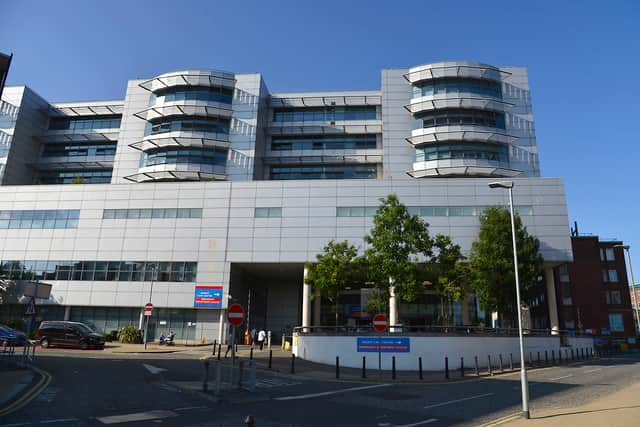

Northern Ireland’s chief nursing officer Charlotte McArdle has said the Belfast health trust is opening up additional ICU beds to cope with a surge in Covid-19 admissions.
The beds for Belfast trust patients are being made available at Belfast City Hospital due to capacity issues at the Royal Victoria and Mater hospitals.
Ms McArdle said there was currently no plan to reopen Northern Ireland’s region-wide Nightingale facility at the City Hospital but she warned that would become a “very real possibility” if the surge continues.
The senior nurse said there were 15 new ICU patients admitted in Northern Ireland over the week.
“The Belfast trust are planning to open additional Covid ICU beds in the BCH on the ground floor which would be for Belfast patients,” she told BBC Radio Ulster’s Nolan Show.
“We haven’t yet made a decision to reopen regional Nightingale, but if this pressure continues that’s a very real possibility and, of course, that comes with complications and other decisions that need to be made around the balance in keeping surgery going.”
She said all five health trusts in Northern Ireland were under increasing pressures.
“All our trusts are having extreme difficulties coping, the health and social care system across all our trusts are struggling to cope with the current levels of demand for care,” she said.
“It’s impacting on the emergency departments, on GP services, on the ambulance service, and in all areas really. The five trusts today are in extreme escalation and at the moment across the five trusts there are 190 people waiting more than 12 hours for hospital admission.”
Teenager with Covid-19 in ICU ‘fighting for life’ in NI hospital
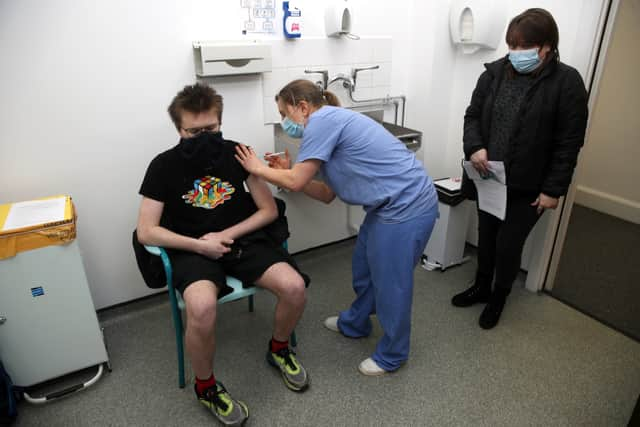

There is a teenager in an intensive care unit (ICU) "fighting for their life" in hospital in the Belfast Health and Social Care Trust (BHSCT) area, according to BBC broadcaster, Stephen Nolan.
Mr. Nolan broke the news on The Stephen Nolan Show’ on BBC Radio Ulster on Monday morning.
The news comes the morning after both BHSCT and the South Eastern Health and Social Care Trust (SEHSCT-19 called on staff on annual leave/away from work to come into the hospial
“I have heard there is a teenager in UCU,” said Pam Cameron, DUP MLA and deputy chair of the Stormont Health Committee.
She added: “The last time I checked there were 86 adults and five children in hospital in the Belfast trust area,” confirmed Ms. Cameron.
Comment Guidelines
National World encourages reader discussion on our stories. User feedback, insights and back-and-forth exchanges add a rich layer of context to reporting. Please review our Community Guidelines before commenting.
